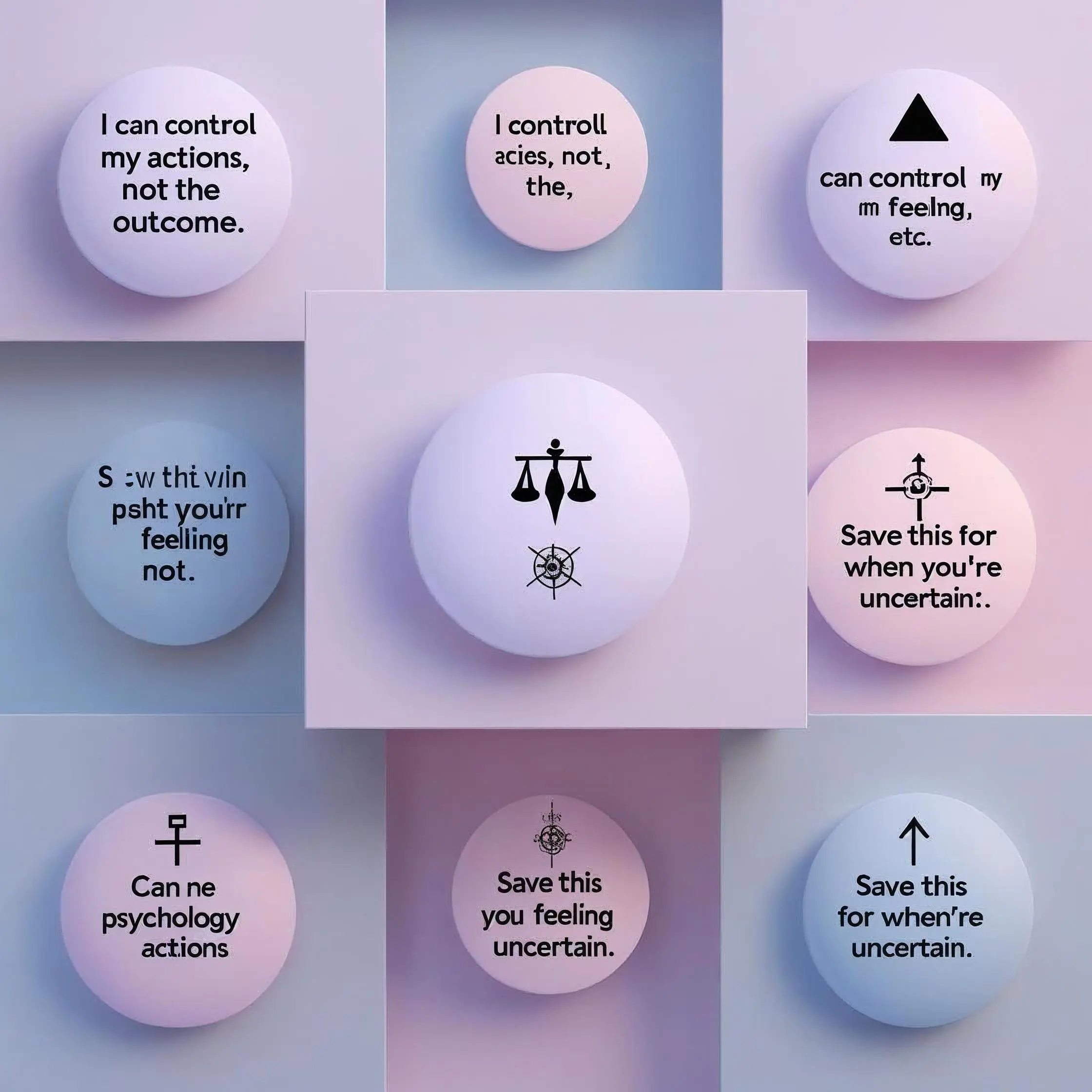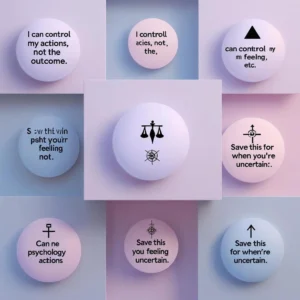Blog
Cognitive psychology
cognitive control, cognitive reframing, decision making under stress, emotional regulation, how to stay calm in chaos, internal dialogue, mental resilience, psychological strategies, psychology of uncertainty, psycsci.com, self-efficacy, self-talk for anxiety, uncertainty coping tips
Dona T
1 Comments
🧠 7 Powerful Cognitive Phrases to Regain Control During Uncertainty (Psychologist-Backed Tools)
Uncertainty often triggers anxiety and loss of focus. But research in cognitive psychology shows that how we talk to ourselves shapes how we cope. These 7 internal phrases help anchor you during unpredictable situations, giving you back a sense of clarity and control.
1. “No matter what I learn, I still have the power to choose what to do next.”
Even if the information is disappointing or confusing, your ability to choose your next step remains intact. This mindset strengthens autonomy and reinforces your sense of agency.
2. “The outcome may turn out better or worse than I expected—and both are manageable.”
Acknowledging that both possibilities exist helps reduce fear. You remind yourself that you’re mentally equipped to handle whatever unfolds, which lowers anticipatory anxiety.
3. “I can control my actions, my strategies, and my effort—but not the result or how others respond.”
This reframes your attention toward things within your control. Letting go of the need to control outcomes or reactions protects your energy and supports emotional regulation.
4. “A good decision process can lead to bad outcomes—and bad processes can sometimes lead to good ones.”
Not every good decision guarantees success. Focus on refining your process. That’s what builds consistency, growth, and real confidence over time.
5. “Today I can control X, but not Y.”
Specify it: “I can control how I structure my day, but I can’t control if the client replies.” Naming the boundary between influence and chaos brings clarity and peace of mind.
6. “I can choose not to repeat old mistakes or move toward my goal—but I might not manage both at once.”
Perfection and progress often don’t coexist. In hard moments, give yourself permission to move forward even if it means taking imperfect action.
7. “My biggest achievements were full of errors, doubts, and detours—and I moved through them anyway.”
Success stories are rarely clean. Reminding yourself that past wins were built on persistence through messiness can normalize your current struggles.
🧩 Final Thought
You don’t need full certainty to take action. You just need a grounded mindset—and it begins with how you talk to yourself.
🔗 Related: How to Build Mental Resilience Using Psychological Tools
https://psycsci.com/2025/08/mental-resilience/
📚 References with Links
Deci, E. L., & Ryan, R. M. (2000).
The “what” and “why” of goal pursuits: Human needs and the self-determination of behavior.
Psychological Inquiry, 11(4), 227–268.
🔗 https://doi.org/10.1207/S15327965PLI1104_01
Gross, J. J. (2002).
Emotion regulation: Affective, cognitive, and social consequences.
Psychophysiology, 39(3), 281–291.
🔗 https://doi.org/10.1017/S0048577201393198
Rotter, J. B. (1966).
Generalized expectancies for internal versus external control of reinforcement.
Psychological Monographs: General and Applied, 80(1), 1–28.
🔗 https://doi.org/10.1037/h0092976
Kahneman, D., & Tversky, A. (1984).
Choices, values, and frames.
American Psychologist, 39(4), 341–350.
🔗 https://doi.org/10.1037/0003-066X.39.4.341
Bandura, A. (1997).
Self-efficacy: The exercise of control.
New York: W.H. Freeman.
🔗 https://www.worldcat.org/title/36746975
📚 Note: Full text not freely available online; WorldCat link provided for library lookup.















1 comment